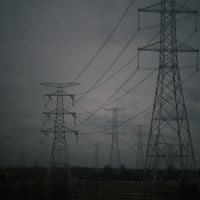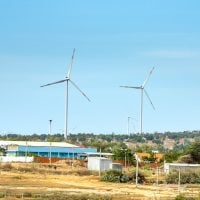In recent years, the global shift towards sustainable energy has gained unprecedented momentum, with governments recognizing the critical role of renewable energy in combating climate change and fostering economic growth. Non-Governmental Organizations (NGOs) focused on renewable energy have emerged as vital players in this transition, often acting as intermediaries between communities, policymakers, and funding bodies. Government funding for these NGOs is not merely a financial lifeline; it is a catalyst for innovation, outreach, and the implementation of sustainable practices.
This article delves into the multifaceted relationship between government funding and renewable energy NGOs, exploring the importance of such support, the programs available, and the challenges faced by these organizations. As the world grapples with the consequences of fossil fuel dependency, the need for renewable energy solutions has never been more pressing. Governments are increasingly aware that NGOs can mobilize grassroots support, educate communities, and implement projects that align with national energy goals.
By providing financial resources, governments can empower these organizations to develop and deploy renewable technologies, advocate for policy changes, and engage in public awareness campaigns. This symbiotic relationship not only enhances the capacity of NGOs but also accelerates the transition to a sustainable energy future. Are You Working on Solar Innovation or Clean Energy Access? Join us to receive updates.
The Importance of Government Support for Renewable Energy Initiatives
Government support is crucial for renewable energy initiatives for several reasons. Firstly, it provides the necessary financial resources that enable NGOs to undertake ambitious projects that might otherwise be unfeasible. Many renewable energy initiatives require significant upfront investment in technology, infrastructure, and human resources.
Government funding can help bridge this gap, allowing NGOs to focus on their mission rather than solely on fundraising. Moreover, government backing often lends credibility to these organizations, attracting additional private sector investment and partnerships. Secondly, government support can facilitate collaboration between various stakeholders in the renewable energy sector.
By funding NGOs, governments can encourage partnerships between local communities, businesses, and academic institutions. This collaborative approach fosters innovation and knowledge sharing, leading to more effective solutions tailored to specific regional needs. For instance, an NGO working on solar energy projects may partner with local universities to conduct research on the most efficient technologies for a particular climate, ultimately enhancing project outcomes and sustainability.
Exploring the Top 10 Government Programs Funding Renewable Energy NGOs
Numerous government programs exist worldwide to support renewable energy NGOs. These programs vary in scope, eligibility criteria, and funding amounts. Some of the most notable include: 1.
The U.S. Department of Energy’s Solar Energy Technologies Office (SETO) provides grants for innovative solar technologies and community solar projects.
2. The European Union’s Horizon Europe program funds research and innovation in renewable energy technologies across member states.
3.
The Green Climate Fund supports projects aimed at reducing greenhouse gas emissions and enhancing climate resilience in developing countries.
4. The Global Environment Facility (GEF) offers funding for projects that address global environmental issues, including renewable energy initiatives.
5. The United Nations Development Programme (UNDP) provides financial assistance for sustainable development projects in various sectors, including renewable energy.
6.
The Clean Development Mechanism (CDM) under the Kyoto Protocol allows developed countries to invest in emission-reduction projects in developing countries.
7. The Renewable Energy and Energy Efficiency Partnership (REEEP) funds projects that promote renewable energy access in developing regions.
8. The U.S.
Agency for International Development (USAID) supports renewable energy initiatives through various programs aimed at enhancing energy access.
9. The World Bank’s Energy Sector Management Assistance Program (ESMAP) provides technical assistance and funding for renewable energy projects.
10. The International Renewable Energy Agency (IRENA) offers support for capacity building and knowledge sharing among member countries.
These programs exemplify the diverse avenues through which governments can support renewable energy NGOs, each with its unique focus and approach.
Criteria for Selecting Renewable Energy NGOs for Government Funding
When governments allocate funding to renewable energy NGOs, they typically employ specific criteria to ensure that resources are directed toward organizations capable of delivering impactful results. One key criterion is the NGO’s track record in implementing successful projects. Governments often look for organizations with demonstrated experience in managing similar initiatives, as this increases the likelihood of achieving desired outcomes.
Another important factor is the alignment of the NGO’s mission with national energy goals and policies. Organizations that can clearly articulate how their work contributes to broader objectives—such as reducing carbon emissions or increasing energy access—are more likely to receive funding. Additionally, governments may assess the scalability of proposed projects; initiatives that can be expanded or replicated in other regions are often prioritized.
Case Studies of Successful Renewable Energy Projects Supported by Government Programs
Several case studies illustrate the transformative impact of government funding on renewable energy NGOs. One notable example is the Solar Sister initiative in Africa, which empowers women entrepreneurs to distribute solar products in their communities. Supported by various government grants and partnerships, Solar Sister has successfully brought clean energy access to thousands of households while promoting gender equality.
Another compelling case is the Wind for Schools program in the United States, which received funding from the Department of Energy. This initiative integrates wind energy education into school curricula while installing small wind turbines on school grounds. The program not only educates students about renewable energy but also provides hands-on experience with technology that can inspire future careers in the field.
These examples highlight how government support can amplify the efforts of NGOs, leading to significant social and environmental benefits.
Challenges and Opportunities for Renewable Energy NGOs in Accessing Government Funding
While government funding presents numerous opportunities for renewable energy NGOs, accessing these resources is not without challenges. One significant hurdle is the competitive nature of grant applications. With many organizations vying for limited funds, NGOs must invest considerable time and effort into crafting compelling proposals that stand out from the crowd.
Additionally, bureaucratic processes can pose obstacles to timely funding disbursement. Lengthy approval timelines and complex reporting requirements may hinder an NGO’s ability to implement projects effectively. However, these challenges also present opportunities for NGOs to strengthen their organizational capacity by developing robust project management skills and building relationships with government agencies.
The Impact of Government Funding on the Growth and Development of Renewable Energy NGOs
Government funding has a profound impact on the growth and development of renewable energy NGOs. Financial support enables these organizations to expand their reach, enhance their capabilities, and innovate new solutions to pressing energy challenges. With adequate resources, NGOs can invest in research and development, explore new technologies, and implement pilot projects that pave the way for larger-scale initiatives.
Moreover, government funding often leads to increased visibility and recognition within the sector. As NGOs successfully execute funded projects, they build credibility and attract further investment from private donors and corporate partners. This virtuous cycle of funding and growth ultimately strengthens the entire renewable energy ecosystem.
Best Practices for Renewable Energy NGOs in Securing Government Funding
To enhance their chances of securing government funding, renewable energy NGOs should adopt several best practices. First and foremost, they should develop a clear and compelling narrative that articulates their mission, goals, and impact. A well-defined story resonates with funders and helps them understand how their investment will contribute to meaningful change.
Additionally, NGOs should prioritize building relationships with government officials and agencies involved in funding decisions. Networking at industry events, participating in public consultations, and engaging in collaborative initiatives can help establish rapport and trust with potential funders. Finally, NGOs should invest in capacity building to improve their grant writing skills and project management capabilities.
Training staff members in these areas can significantly enhance an organization’s ability to submit successful proposals and manage funded projects effectively.
The Role of Renewable Energy NGOs in Advancing Government Policy and Legislation
Renewable energy NGOs play a crucial role in shaping government policy and legislation related to sustainable energy practices. By advocating for policies that promote renewable energy adoption, these organizations can influence decision-makers at local, national, and international levels. Their grassroots connections enable them to represent community interests effectively while providing valuable insights into the challenges faced by those directly impacted by energy policies.
Furthermore, NGOs often serve as a bridge between policymakers and communities affected by energy transitions. They can facilitate dialogue between stakeholders, ensuring that diverse perspectives are considered in policy formulation. This collaborative approach fosters more inclusive decision-making processes that ultimately lead to more effective policies.
Future Trends in Government Funding for Renewable Energy NGOs
As global awareness of climate change continues to grow, future trends indicate an increase in government funding for renewable energy NGOs. Policymakers are likely to prioritize investments that align with international climate commitments such as the Paris Agreement. This shift will create new opportunities for NGOs focused on innovative solutions that address both mitigation and adaptation challenges.
Additionally, there may be a growing emphasis on funding projects that promote social equity within the renewable energy sector. Governments are increasingly recognizing that access to clean energy is a fundamental right; thus, initiatives aimed at empowering marginalized communities will likely receive heightened attention and support.
The Role of Government Programs in Advancing Renewable Energy Initiatives
In conclusion, government programs play an indispensable role in advancing renewable energy initiatives through their support of NGOs dedicated to this cause. By providing financial resources, fostering collaboration among stakeholders, and influencing policy development, governments can significantly enhance the capacity of these organizations to drive meaningful change. As we look toward a future defined by sustainable energy practices, it is essential for both governments and NGOs to work together strategically to overcome challenges and seize opportunities that will ultimately lead us toward a cleaner, greener world.
In addition to exploring the “Top 10 Government Programs Funding Renewable Energy NGOs,” those interested in broader funding opportunities for grassroots initiatives might find the Onside Fund 2024 particularly relevant. This fund offers unrestricted financial support to grassroots groups, organizations, and changemakers, which can be instrumental in driving community-based renewable energy projects. For more information on this opportunity, you can visit the Onside Fund 2024 page. This initiative complements government programs by providing flexible funding that can be tailored to the unique needs of local renewable energy efforts.









































